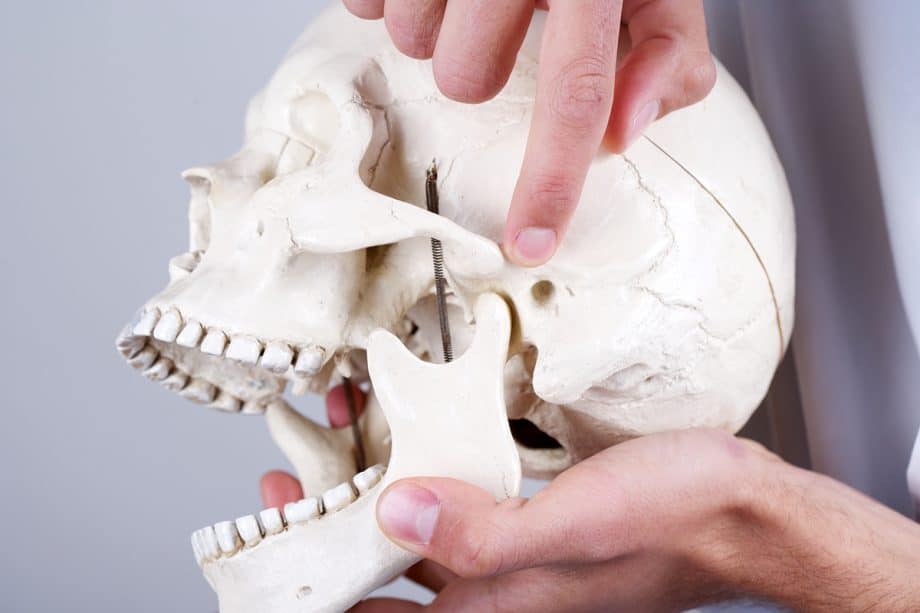TMJ disorder is a common condition affecting the temporomandibular joints on the sides of the face where the lower jaw connects to the head. This hinge joint can become irritated and inflamed, resulting in pain and limited range of motion.
What happens if TMJ is left untreated? In some cases TMJ disorder will clear up on its own. In other cases it may persist or get worse. Here’s what you need to know about TMJ disorder and when to seek treatment.
What is TMJ Disorder?
TMJ disorder affects the temporomandibular joint, causing inflammation and swelling of the muscles and ligaments that control it. The joint may become misaligned and the disc that cushions the joint may slip out of place causing the bones to grind together. In severe cases the joint may need to be reconstructed.
Symptoms of TMJ Disorder
Common symptoms of TMJ disorder include:
- Pain in the jaw, constant or when chewing
- Swelling of the sides of the face near the ear
- Ear pain
- Muscle tension in the face
- Limited range of motion when opening your mouth
- Clicking or popping sound when moving your jaw
- Headaches, especially in the temple region of the head
- Neck pain
How to Treat TMJ Disorder
The following treatments can be applied at home when you experience symptoms:
- Apply ice to the side of the face where the swelling exists.
- Take anti-inflammatory pain medication (ibuprofen).
- Rest your jaw as much as possible. Avoid talking, singing, yawning, etc.
- Eat soft foods or stick to a liquid diet.
When to Seek Professional Treatment for TMJ Disorder
If your symptoms do not subside after a week with the above treatments, contact your dentist for further treatment. Professional TMJ treatments may include:
- Custom mouth guards and splints. We can create a custom mouth guard or bite splint to help relieve the tension in your jaw by aligning your bite and/or absorbing the impact of teeth grinding. With use of a mouth guard or splint your TMJ will have time to recover.
- Muscle relaxers. We can prescribe muscle relaxers that will relieve the tension in your muscles and ligaments in the TMJ, which can relieve pain and increase range of motion in your jaw.
- Stretching exercises. We can teach you stretching exercises that will help to relieve the pain associated with TMJ disorder and help to prevent it from recurring.
How Long Can TMJ Go Untreated?
If your TMJ symptoms persist for more than 2 weeks without relief, it is crucial that you seek treatment. At this point TMJ disorder will most likely not go away on its own and will only worsen. The inflammation and swelling can cause irreparable damage to the joint that may lead to more invasive treatment, such as surgery.
Where to Seek TMJ Treatment
TMJ disorder is diagnosed and treated by a dentist. Dentists specialize in the anatomy of the mouth and jaw, making them uniquely qualified to treat this condition. R. Renan Williams, DDS provides diagnosis and a variety of treatments for TMJ disorder. We get the source of your TMJ disorder and provide the right treatment to relieve your symptoms and prevent future flare ups.
Call 817-281-4801 or contact us today to learn more and schedule an appointment.
Frequently Asked Questions About TMJ Disorder
Can TMJ disorder be permanently cured?
By treating the cause of TMJ disorder, a long term and potentially permanent cure can be achieved. For example, if the cause is teeth grinding, a night guard can prevent strain on the TMJ and prevent flare ups.
Is TMJ disorder caused by an injury?
A blow to the jaw or the side of the face could knock the joint out of alignment, resulting in TMJ disorder. A bite splint can help realign the joint and relieve the symptoms.

